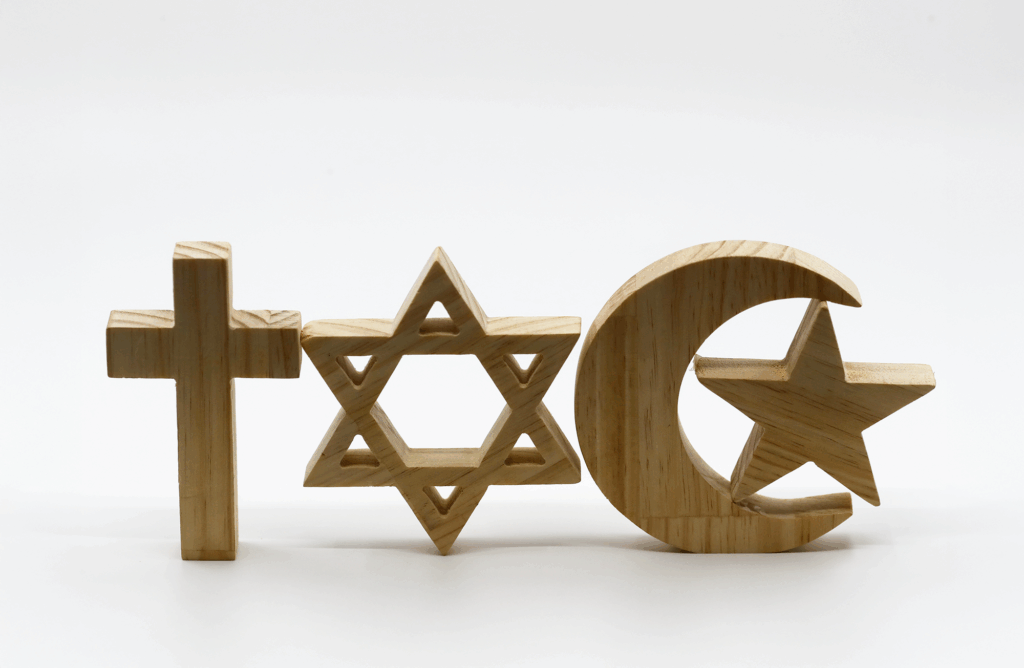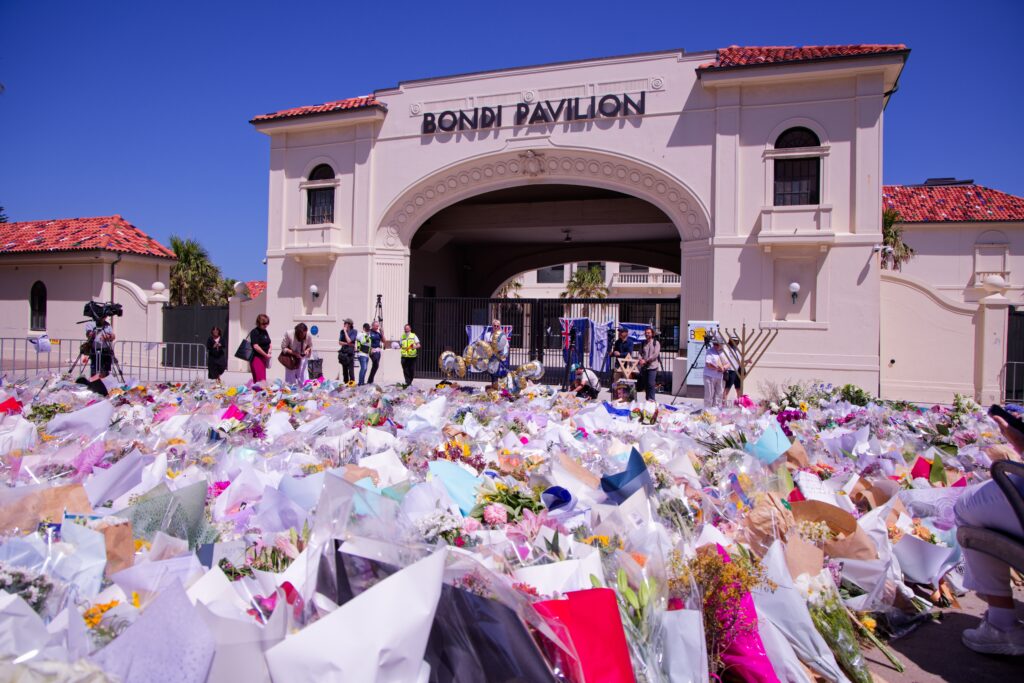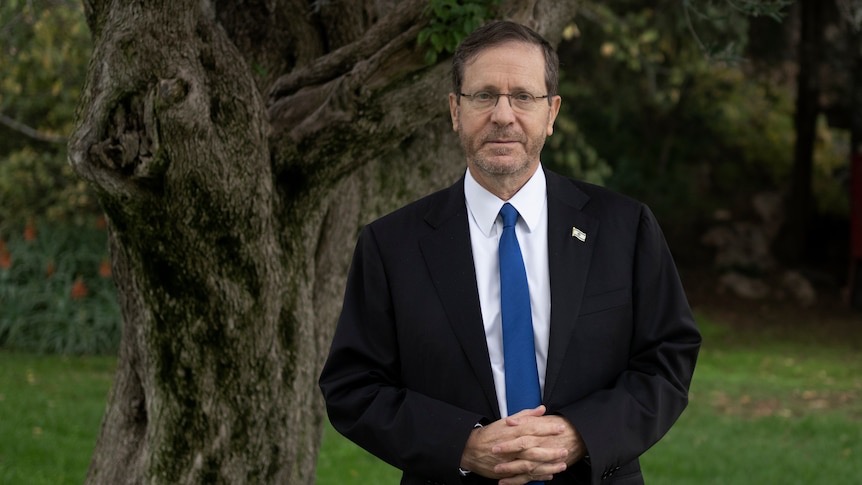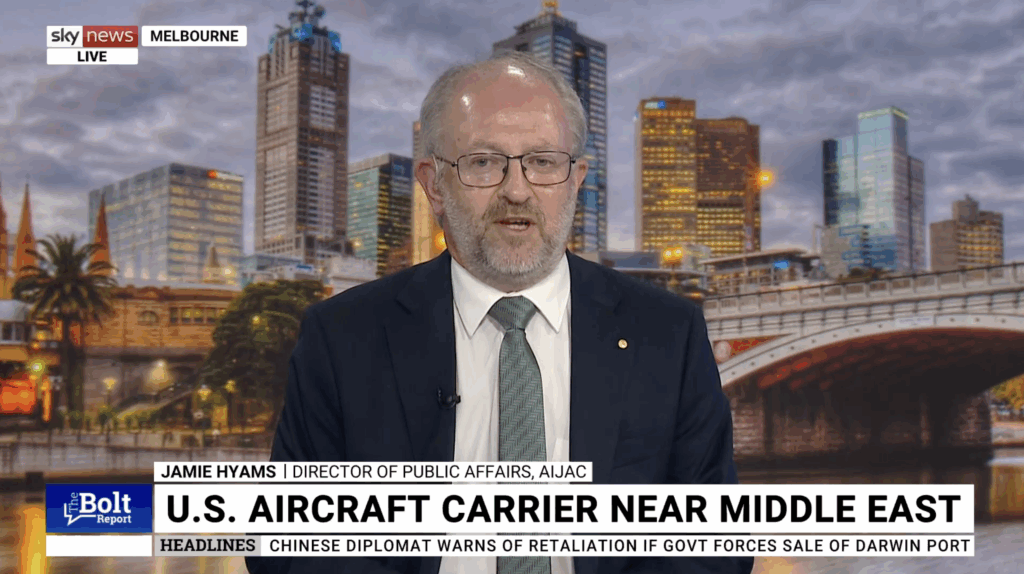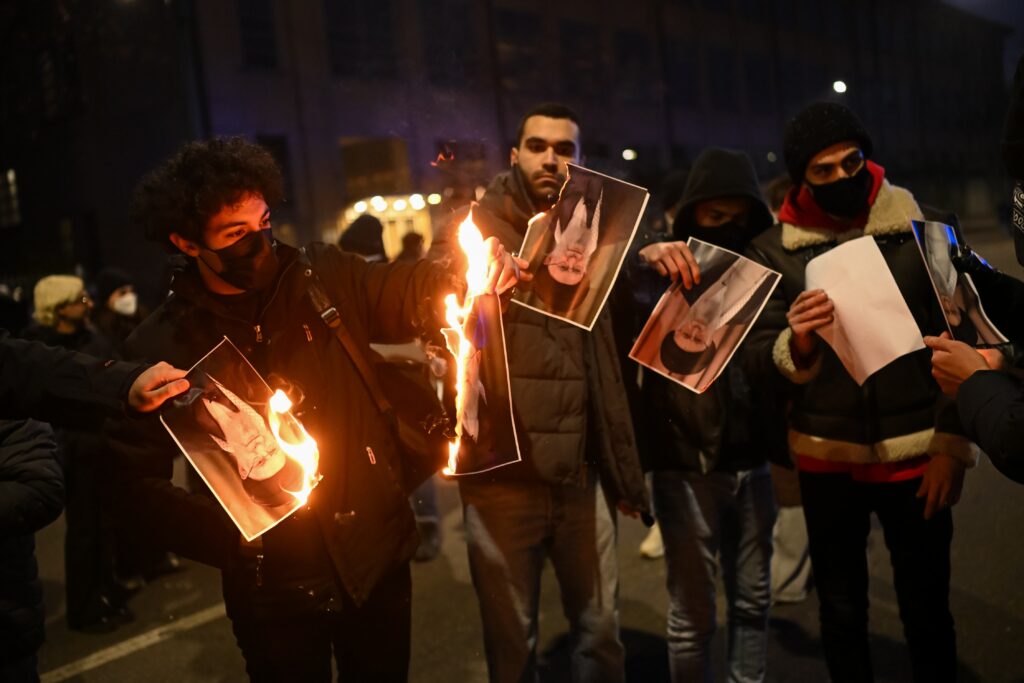UPDATES
The 1947 UN Partition Plan mis-remembered by the UN
November 30, 2011 | Sharyn Mittelman

On 29 November 64 years ago, the UN General Assembly voted on the partition plan, and the United Nations General Assembly Resolution 181 was adopted by a vote of 33 to 13, recommending the establishment of two states – Arab and Jewish.
The Jews accepted the partition plan, the Arabs did not. If the Arabs had accepted the partition plan, we would have a two-state solution today and ‘Palestine’ would be 64 years old as well.
The fact that the Arabs did not accept the partition plan and that five Arab states went to war with Israel in response has increasingly been left out of the Palestinian narrative, which has been termed the 1948 Al-Nakbah (‘catastrophe’). Al Nakbah narratives generally place sole blame on Israel for the fact that many Palestinians were uprooted by the conflict that ensued.
It is therefore unsurprising that November 29, is not called ‘Israel day’ but rather the ‘International Day of Solidarity with the Palestinian People’.
Marking this day at the UN was a General Assembly resolution on the “Question of Palestine” which condemned Israel, pre-empted the results of final status negotiations between Israel and the Palestinians and failed to acknowledge Israel’s legitimate security rights, amongst other concerning features of the resolution.
In response to the UN resolution, Ron Prosor, UN Representative to Israel delivered a stirring speech that condemned the UN’s consistent attack on Israel and outlined the real reasons that have so far prevented peace, he said:
“A great Jewish sage once wrote, ‘The truth can hurt like a thorn, at first; but in the end it blossoms like a rose.’
His words came to my mind today. His insight could really benefit many in this hall.
It takes a well of truth to water the seeds of peace. Yet, we continue to witness a drought of candor in this body’s discussion of the Israeli-Palestinian Conflict. On this historic day, real facts in the General Assembly remain few and far between.
For any who have been here on November 29th before, today is déjà vu. Some of you may have noticed that some minor changes have been taking place in the Middle East lately, but any changes in this body’s resolutions condemning Israel are very, very rare.
Indeed, it didn’t take a creative writer to craft the language in these resolutions. The exact same text is copied and pasted, year after year – much of it dating back five decades.
The account we heard today is one-sided. It is unilateral. It is unjust. And it is unhelpful. It presents a distorted and impartial version of history. It transforms the cause of Palestinian self-determination into a deliberate attempt to denigrate, defame, and delegitimize the State of Israel.
The political dynamics in this body are sadly predictable. Every November, the leaves change color in New York, but the automatic anti-Israel majority never changes its votes.
Each and every responsible member of the international community that affixes its seal of approval on this exact same set of resolutions – which are irrelevant at best, and damaging at worst- should do a little soul searching. Is this the message that you want the General Assembly to send to the world?
Mr. President,
Let me take a moment to remind this Assembly about what actually occurred on this day 64 years ago – and in the days that followed.
On November 29, 1947, the United Nations voted to partition then British-Mandate Palestine into two states: one Jewish, one Arab. Two states for two peoples.
The Jewish population accepted that plan and declared a new state in its ancient homeland. It reflected the Zionist conviction that it was both necessary and possible to live in peace with our neighbors in the land of our forefathers.
The Arab inhabitants rejected the plan and launched a war of annihilation against the new Jewish state, joined by the armies of five Arab members of the United Nations.
One percent of Israel’s population died during this assault by five armies. Think about that price. It would be the equivalent of 650,000 dying in France today, or 3 million dying in the United States, or 13 million dying in China.
As a result of the war, there were Arabs who became refugees. A similar number of Jews, who lived in Arab countries, were forced to flee their homes as well. They, too, became refugees.
The difference between these two distinct populations was – and still is – that Israel absorbed the refugees into our society. Our neighbors did not.
Refugee camps in Israel gave birth to thriving towns and cities. Refugee camps in Arab Countries gave birth to more Palestinian refugees.
We unlocked our new immigrants’ vast potential. The Arab World knowingly and intentionally kept their Palestinian populations in the second class status of permanent refugees.
In Lebanon for many years and still today, the law prohibits Palestinians from owning land – and from working in the public sector or as doctors and lawyers. Palestinians are banned from these professions.
In Kuwait, the once significant Palestinian population was forcibly expelled from the country in 1991. Few remain.
In Syria, thousands of Palestinians had to flee refugee camps in Latakia last August when President Assad shelled their homes with naval gunboats.
In the vast majority of Arab Countries, Palestinians have no rights of citizenship. It is no coincidence that the Arab World’s responsibilities for the “inalienable rights” of these Palestinians never appear in the resolutions before you.
Mr. President,
The basic question underlying our conflict for 64 years has not changed. That question is: has the Arab World – and particularly the Palestinians – internalized that Israel is here to stay and will remain the Nation-state of the Jewish People?
It is still unclear whether they are inspired by the promise of building a new state, or the goal of destroying an existing one.
Two months ago, President Abbas stood at the podium in this very hall and tried to erase the unbroken and unbreakable connection between the Jewish people and the Land of Israel.
He said the following:
‘I come before you today from the Holy Land, the land of Palestine, the land of divine messages, ascension of the Prophet Muhammad (peace be upon him) and the birthplace of Jesus Christ (peace be upon him).’
This was not an oversight. It was not a slip of the tongue. It was yet another deliberate attempt to deny and erase more than 3,000 years of Jewish history. The Arab leaders from those two nations that sought peace have offered a different message.
For example, in 1995, King Hussein came to the United States and said (quote): ‘For our part, we shall continue to work for the new dawn when all the Children of Abraham and their descendants are living together in the birthplace of their three great monotheistic religions.’
In 1977, President Sadat came to Israel’s Knesset and quoted this verse from the Koran: ‘We believe in God and in what has been revealed to us and what was revealed to Abraham, Ismail, Isaac, Jacob, and the tribes and in the books given to Moses, Jesus, and the prophets from their lord.’
President Sadat and King Hussein spoke of THREE monotheistic religions, not ONE or TWO.
Mr. President,
The resolution that gives the 29th of November significance – General Assembly resolution 181 – speaks of the creation of a “Jewish State” no less than 25 times. We still do not hear Palestinian leaders utter the term.
The Palestinian leadership refuses to acknowledge Israel’s character as a Jewish state. You will never hear them say “two states for two peoples”. If you ever hear a Palestinian leader say ‘two states for two peoples’, please phone me immediately. My office has set up the equivalent of a 9/11 number in the event of such an unprecedented occurrence.
Palestinian leaders call for an independent Palestinian state, but insist that the Palestinian people return to the Jewish state. This is a proposition that no one who believes in the right of Israel to exist could ever accept.
The idea that Israel will be flooded with millions of Palestinians is a non-starter. The international community knows it. The Palestinian leadership knows it. But the Palestinian people aren’t hearing it. At this very moment, the gap between their perception and reality remains the major obstacle to peace.
Let me repeat that: the so-called right of return is and will remain the major obstacle to peace. It is not settlements. It is not the laundry list of baseless accusations launched against Israel in today’s resolutions.
I’ll repeat it again: the so-called right of return is the major obstacle to peace. Everyone knows it.
Yet, all of those who were so vocal today in telling Israel what is has to do for peace – mumbled, stuttered and conveniently lost their voices when it came to telling the Palestinians that the so-called right of return is a non-starter.
For decades, this body has rubberstamped nearly every Palestinian whim, no matter how counter-factual or counter-productive. What has this accomplished? The lip service of this body has only done a disservice for peace.
Mr. President,
True friends of the Palestinians have a responsibility to tell them the truth.
They will stop promoting the distorted version of history that characterizes this day, and start delivering the real lessons of history that the Palestinian leadership now refuses to heed.
These lessons are clear: bilateral negotiations are the only route to two states, for two peoples – living side-by-side in peace and security; negotiations that resolve the outstanding concerns of both sides.
While bypass maneuvers may work for heart surgery and highway construction, they will not bring peace or security to our region.
Direct negotiations were the way of President Sadat and Prime Minister Begin, the way of Prime Minister Rabin and King Hussein. It has been the framework for advancing peace between Israel and the Palestinians for the past two decades.
Time and again, we have extended our hand in peace to the Palestinians. Prime Minister Netanyahu stood in this very hall last September and declared his commitment to the cause of Palestinian self-determination – and his vision for establishing a Palestinian state, alongside the Jewish State of Israel – two states for two peoples.
Yet, today we wait for the Palestinians to give up the false idol of unilateralism – and get back to the real hard work of direct negotiations. And – as they continue to run away from the negotiating table, the Palestinian leadership continues to move closer into their embrace of Hamas – an internationally recognized terrorist organization dedicated to the destruction of Israel.
This development brings to my mind Groucho Marx’s famous line: ‘Those are my principles, and if you don’t like them … well, I have others.’ The Quartet has long applied three principles that Hamas must adopt. It must renounce violence, recognize Israel and abide by prior agreements. At no point has Hamas satisfied these conditions – or indicated any intention to do so.
Those who advocate recognizing a Government that includes Hamas are urging a Groucho-Marxist policy in a complex, unstable region. If Hamas is too extreme to accept these principles, they argue, we must tailor our principles to match Hamas’s extremism.
The bar has been set very low. On these basic requirements for peace, there can be no adjustments. There can be no bargaining. There can be no Holiday Season discounts – in this hall or anywhere else.
Mr. President,
Even more than the words spoken in the speeches here today – or the words in the resolutions before you- it is the words not spoken that speak volumes. This Assembly has made clear that it does not stand in solidarity with many people in our region today.
In this hall, I hear no solidarity with the one million Israeli men, women and children who live under the constant rain rockets, mortars and missiles from the Gaza Strip.
I hear no solidarity with the 16-year old boy who was killed last April when a Hamas anti-Tank Missile struck his school bus. Or the thousands of other Israeli civilians who have been killed and injured.
I hear no solidarity with the Israeli children who learn the alphabet at the same time that they learn the names Kassam, Grad, and Katyusha – the rockets that keep them out of school for weeks at a time.
I hear no solidarity with the Palestinians who are victims of brutal Hamas rule – with the political opponents who are tortured, the women who are subjugated, or the children who are used as suicide bombers and human shields.
And – Mr. President, today I hear no solidarity with the many people in the Middle East who are being repressed and slaughtered every single day for demanding their freedom. From Syria to Iran to Yemen, these people are no longer content with their leader’s explanations that Israel is to blame for all the problems of the Middle East – a fiction that is advanced through resolutions like those before us today.
Today the People of the Middle East demand real answers for their plight.
I also heard no discussion today about the incitement that continues to fill the West Bank and Gaza, where the next generation of Palestinian children is being taught that suicide bombers are heroes, that Jews have no connection to the Holy Land, and that they must seek to annihilate the State of Israel.
>From cradles to kindergarten classrooms; from the grounds of summer camps to the stands of football stadiums; from the names of public squares to the public pronouncements of Palestinian leaders, these messages are everywhere.
Just last month, President Abbas declared that the Palestinian Authority would provide a grant of up to $5,000 to every terrorist released in exchange for Gilad Shalit, Israel’s kidnapped soldier.
These are people like Ibrahim Shammasina, who helped to murder four Israelis, including two teenagers. People like Walid Anajas, who planned bombings in the heart of Jerusalem and Rishon Lezion, which killed 32.
People like Wafa-al Bis, who unsuccessfully tried to blow herself up in an Israeli hospital.
Washed in the blood of innocents, these terrorists are being held up as role models for the next generation of Palestinian children.
Palestinian Authority television broadcast President Abbas’ remarks to these released terrorists last October. He said, “You are people of struggle and Jihad fighters for Allah and the homeland… Your sacrifice and your effort and your actions were not in vain.”
Mr. President,
Sustainable peace must take root in homes, schools, and media that teach tolerance and understanding so that it can grow in hearts and minds.
It must come from a Palestinian leadership willing to tell its people about the difficult compromises that they will have to make for statehood.
It will come through the hard work of state-building, not the old habit of state-bashing.
Today none of these truths have been spoken.
Today I hear no solidarity with the principles of peace.
I know that the truth can be a burden. I know that old habits die-hard. I know that the convenience of the moment sometimes weighs heavy on the interests of the future.
Yet, only the truth will set us free. After years of darkness, I call on this Assembly to bring new light to this debate.
I call on each and every delegate in this hall to embrace pragmatic solutions, not automatic resolutions; to speak with candor, and not slander; to grapple for a new vision, and not old divisions.
I call on this Assembly to finally glean truth from this historic day, nourishing the seeds of peace in our region that can blossom into a brighter future.
Thank you, Mr. President”
Sharyn Mittelman
Tags: Israel

